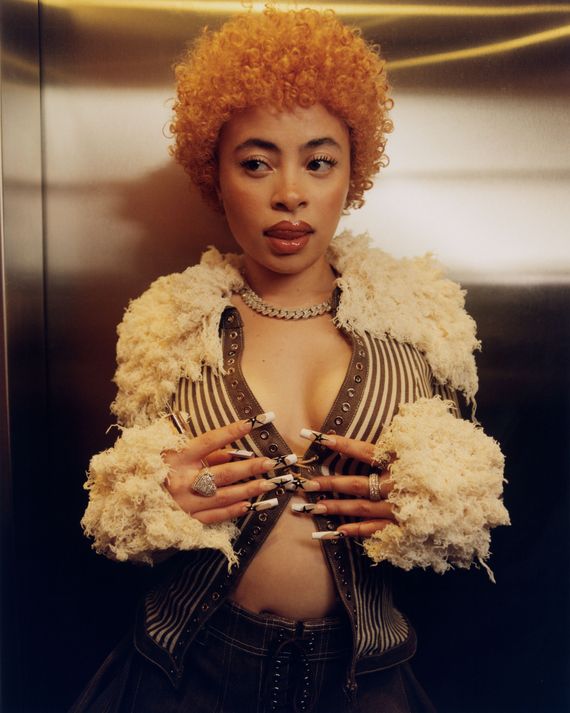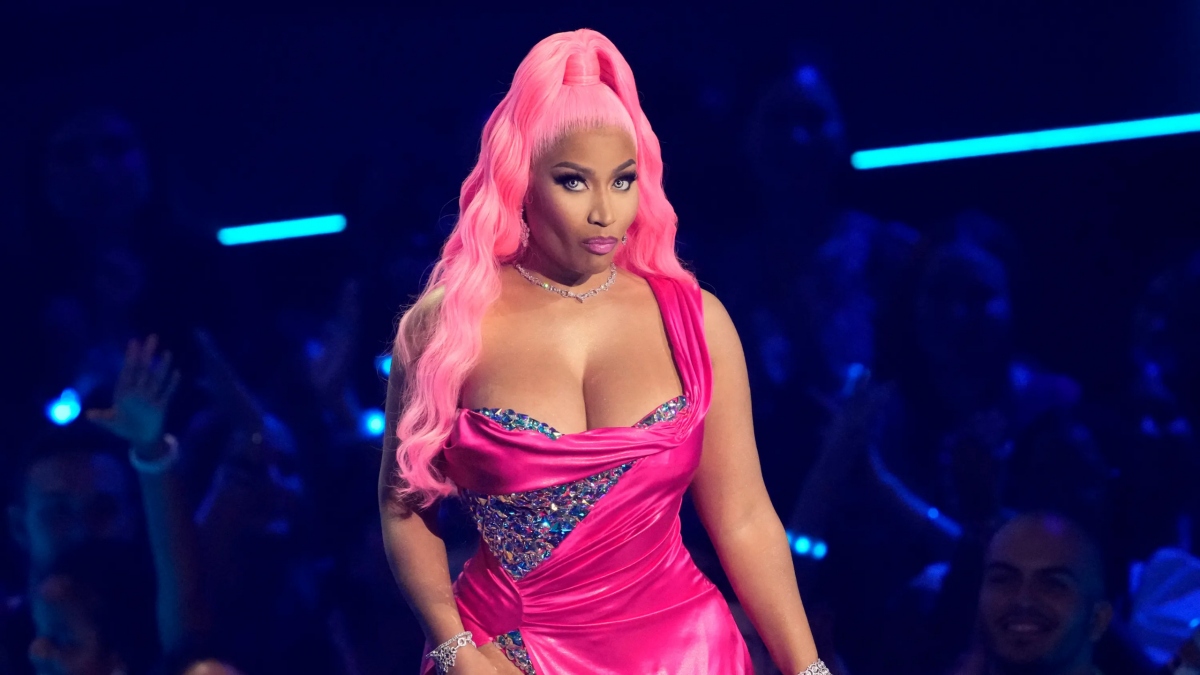In a development that has reverberated across the music industry, Variety magazine’s annual “Worst Songs of 2024” list has named three of rap’s most influential figures: Ice Spice, Nicki Minaj, and Kanye West. Their inclusion has ignited intense discussions about artistic expression, music criticism, and the state of modern hip-hop, fueling debate among fans, critics, and industry insiders alike.
Here's ads banner inside a post
Ice Spice’s Controversial Diss Track: “Think U The Sh*t (Fart)”
Topping the controversy is Ice Spice’s provocatively titled diss track, “Think U The Sh*t (Fart),” aimed at fellow rapper Latto. The track gained massive attention upon release, with Variety criticizing its “juvenile approach to conflict.” Despite this, fans of Ice Spice argue that the song’s boldness and irreverence embody the evolving nature of diss tracks in hip-hop culture.
Industry experts have noted that diss tracks historically serve as vehicles for artistic rivalry and creative innovation. The discourse around Ice Spice’s track reflects a shift in how these songs are evaluated, with younger audiences embracing their raw and unapologetic style while older critics question their artistic depth.

Here's ads banner inside a post
Nicki Minaj Responds with “Big Foot”
Nicki Minaj’s explosive response to Megan Thee Stallion, “Big Foot,” also earned a spot on the list. Known for her sharp lyricism and aggressive delivery, Minaj’s track was lauded by some for its raw energy. However, critics labeled it overly personal and divisive, igniting debates about the boundaries of artistic expression.
“Big Foot” has also spurred discussions about gender dynamics in rap. Fans argue that Minaj’s criticism stems from a double standard, as male rappers’ aggressive lyrics often face less scrutiny. The controversy underscores the ongoing challenge female artists face in navigating perceptions of strength and vulnerability within the genre.

Here's ads banner inside a post
Kanye West’s Collaborative Misstep: “Carnival”
Kanye West’s collaboration with Ty Dolla $ign on “Carnival” rounds out the top three. The track, which has been criticized for its lyrical content and experimental production, sparked conversations about West’s history of pushing artistic boundaries. While some see the song as emblematic of his daring creativity, others view it as a misstep in his storied career.
West’s inclusion on the list has reignited debates about artistic freedom and responsibility. His ability to polarize audiences remains a hallmark of his career, reflecting both the risks and rewards of his relentless pursuit of innovation.

Beyond Rap: Other Notable Inclusions
Variety’s list extended beyond hip-hop, including tracks from pop heavyweights such as Katy Perry (“Woman’s World”), Jojo Siwa (“Karma”), and Camila Cabello (“I Luv It”). Each selection has sparked its own set of discussions about authenticity, artistic evolution, and the subjective nature of music criticism.
The Criteria Controversy
The methodology behind Variety’s list has drawn scrutiny, with many questioning the role of personal taste and cultural bias in evaluating songs. Critics argue that such rankings can marginalize innovative works that challenge conventional norms, while supporters defend the importance of critical appraisal in maintaining artistic standards.
Social Media Reaction: Fans Defend Their Favorites
Social media platforms have become battlegrounds for fans rallying behind their favorite artists. Hashtags supporting Ice Spice, Nicki Minaj, and Kanye West trended as fans dissected the songs’ merits and critiqued the list’s credibility. One user tweeted, “Art is subjective. These songs are ahead of their time, and Variety’s list proves nothing.”
Others acknowledged the critiques but highlighted the commercial success of the listed tracks, pointing to their streaming numbers and chart performances as evidence of their cultural impact.
Historical Context: Controversy as Catalyst
Music historians remind us that many songs initially dismissed as failures have later been recognized as groundbreaking. From misunderstood lyrics to experimental sounds, these tracks often pave the way for future trends. The ongoing discussions surrounding the “Worst Songs of 2024” list highlight the evolving relationship between artists, critics, and audiences.
Commercial Success vs. Critical Reception
An intriguing element of the controversy is the disconnect between the songs’ critical reception and their commercial success. Ice Spice’s diss track, for instance, amassed millions of streams within days, while Nicki Minaj’s “Big Foot” dominated social media conversations. Kanye West’s “Carnival” also found a niche audience appreciative of its experimental approach.
Artistic Freedom and Creative Growth
The artists’ responses to their inclusion on the list vary. While some have remained silent, others have used social media to defend their creative choices. This dialogue has sparked broader conversations about the balance between artistic vision and audience expectations.
The Future of Music Criticism
The “Worst Songs of 2024” list serves as a reminder of the subjectivity inherent in music criticism. As the industry continues to evolve, so too will the metrics by which art is judged. Whether the songs listed by Variety are remembered as failures or celebrated as ahead of their time, one thing is certain: they have left an indelible mark on the cultural landscape of 2024.

